Commercial Roofing Types and Materials
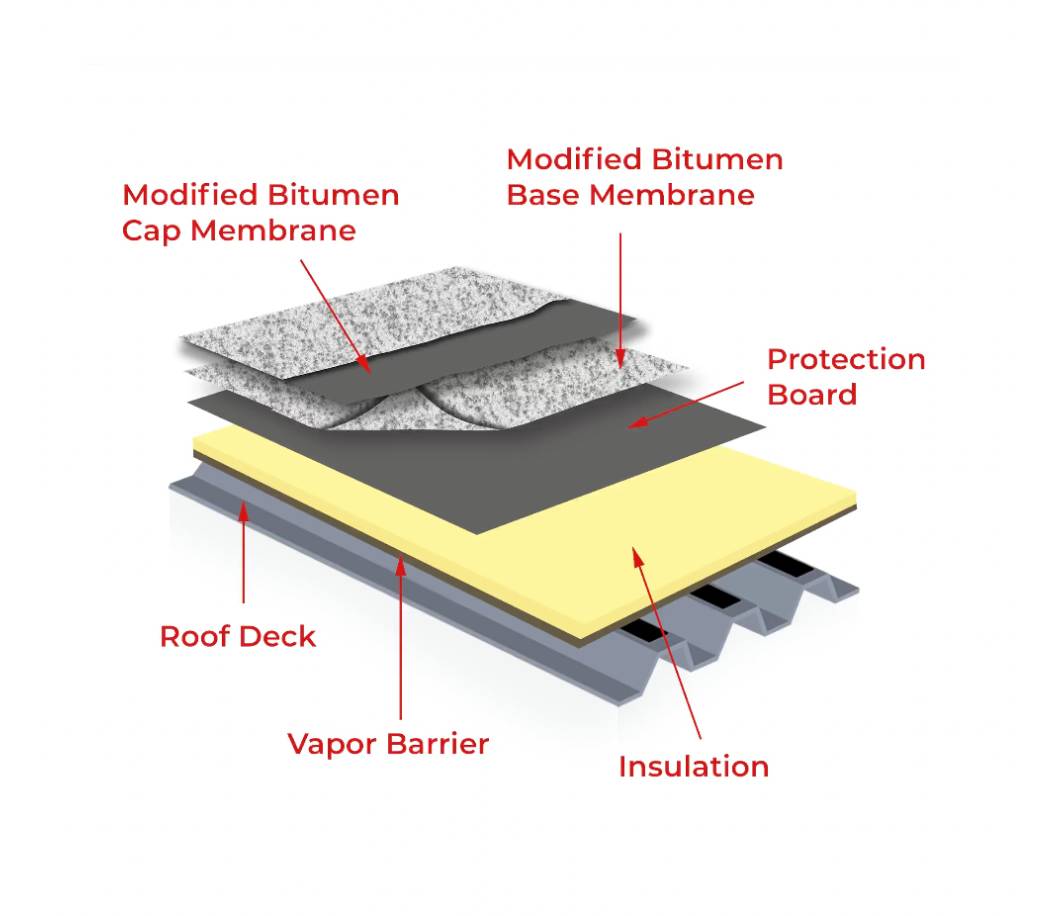
SBS Modified Bitumen Roof
SBS modified bitumen roofing can withstand both high and low temperatures due to polymer modification. A standard SBS modified bitumen roof system is a two-ply system applied in rolls that overlap the edge of the previous roll. SBS is often the more popular system, as the synthetic rubber additive increases the product’s flexibility.
Common Types
- SBS
Benefits
- High durability
- Weather resistant
- Easy to repair
- Flexible
TPO Roofing System
TPO is short for “thermoplastic polyolefin.” TPO is a single-ply roofing membrane that offers excellent performance at a cost-effective price. TPO can be fully adhered, mechanically fastened, or ballasted. The seams of the membrane are hot-air welded to form a strong waterproof bond between sheets.
Benefits
- Durable — strong puncture-resistant material
- Energy efficient
- Resistant to chemicals: acid, salt, oil, etc.
- Naturally fungal resistant
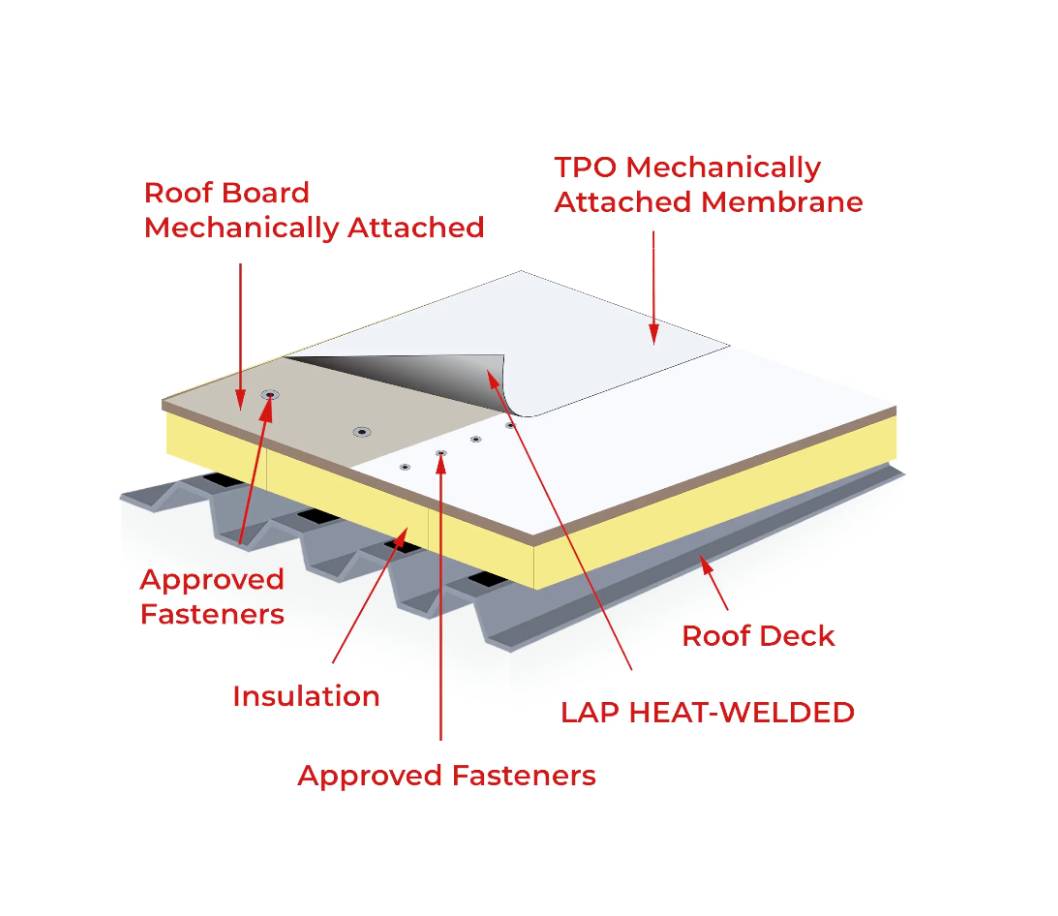
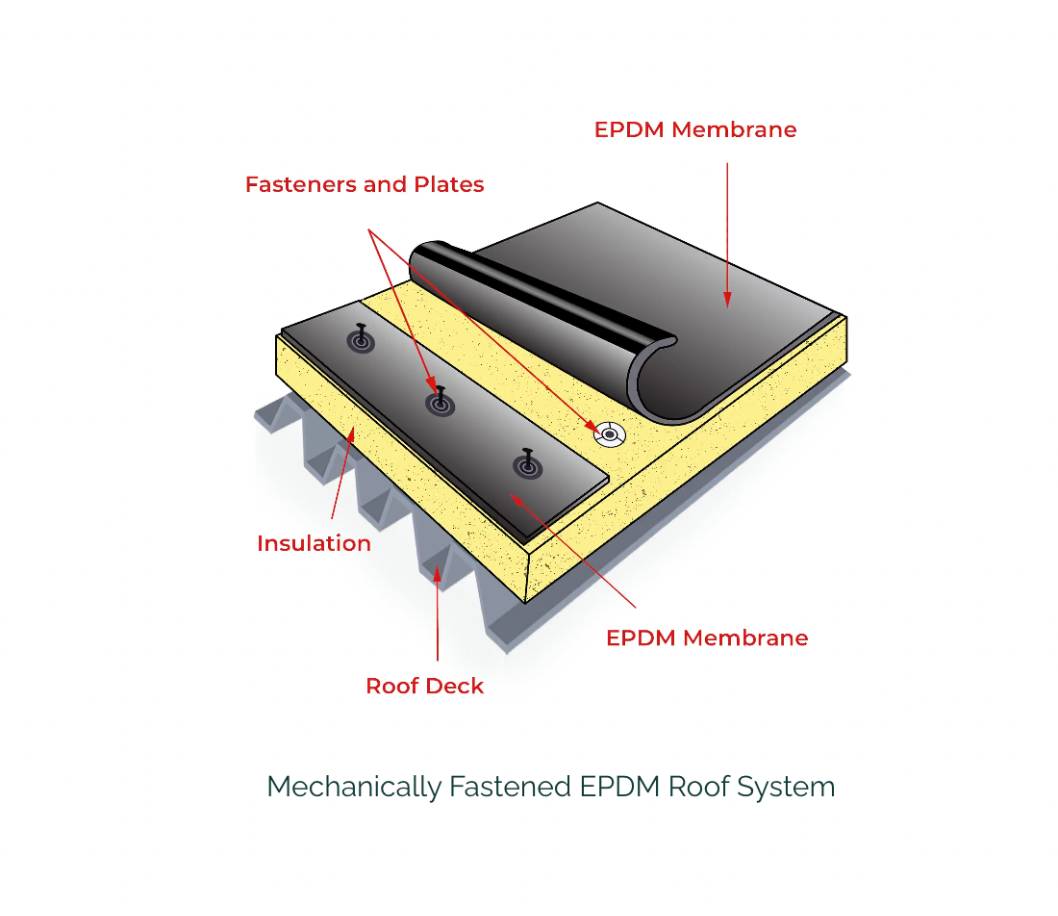
EPDM Roof System
EPDM (ethylene propylene diene monomer) is an extremely durable synthetic rubber roofing membrane. It is a reinforced rubber sheet with excellent mechanical and weathering properties. EPDM can be installed either fully adhered, mechanically attached, or ballasted, with the seams of the roofing system sealed with liquid adhesives or specially formulated tape.
Benefits
- Resistance to thermal shock, hail, and breakdown
- Effective in most climates
- No shattering in extreme cold
- Ability to withstand damage from UV rays
- Adaptive to structural movement
- Can be recycled when re-roofing
- Available in different thicknesses
PVC Roof System
PVC (polyvinyl chloride) roofing is a single-ply roofing solution used on commercial or industrial roofs that are flat or low sloped. PVC is the third most widely produced synthetic plastic polymer. PVC membrane comes in rolls of various sizes and thicknesses. PVC roof membranes can be fully adhered, mechanically fastened, or ballasted. The rolls are bound together at the seams through heat welding.
Benefits
- Hot-air welded seams and durable
- Resistant to strong winds
- Strong, puncture-resistant material
- UV resistant
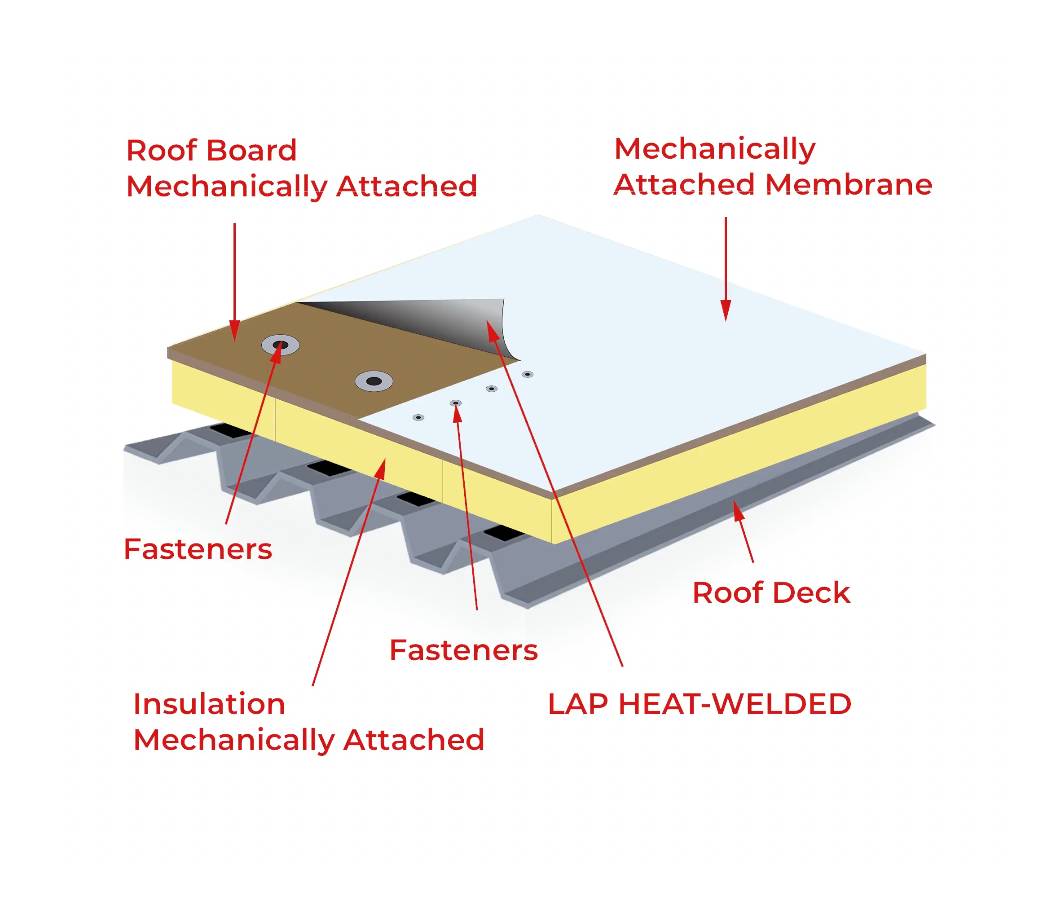
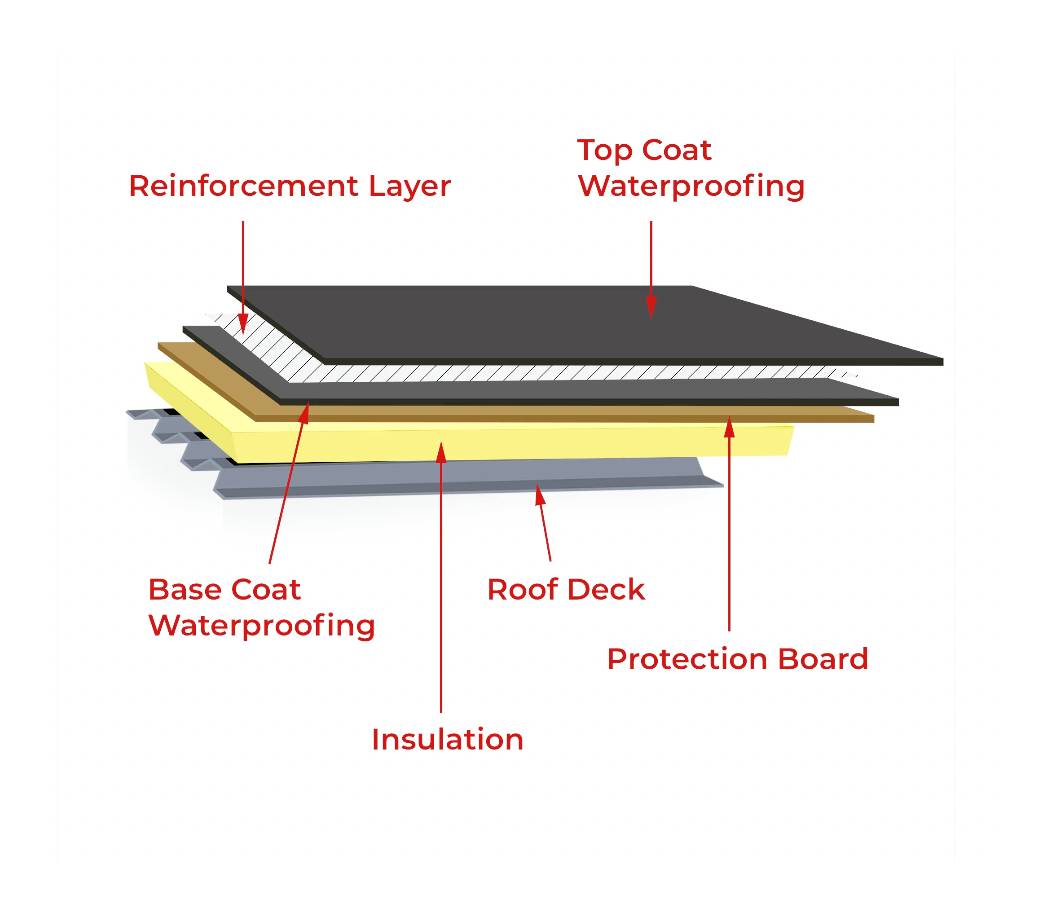
Liquid Applied Coatings
The coatings can be applied over most traditional roofing materials, including felt, asphalt, bitumen, and concrete. Roof coatings extend the life of traditional roof systems and act as a protective membrane against physical damage, general wear and tear, and UV rays. The reflective characteristics can reflect heat and UV rays, which can lower summertime cooling costs.
Benefits
- Cost effective
- High performance
- High resistance to extreme temperatures
Metal Roof System
Most metal roofs are made from corrugated galvanized steel — a steel sheet coated with zinc. Copper, aluminum, or stainless steel metal roofing applications come in a variety of colors. The benefits of metal roofing include longevity, durability, and heat resistance. Additionally, metal roofs can withstand high winds and are largely impact resistant. Metal is not permeable to water, which is important in rainy and snowy regions.
Benefits
- Long lifespan
- Endurance
- Not combustible
- Energy efficient
- Environmentally safe
- Low maintenance
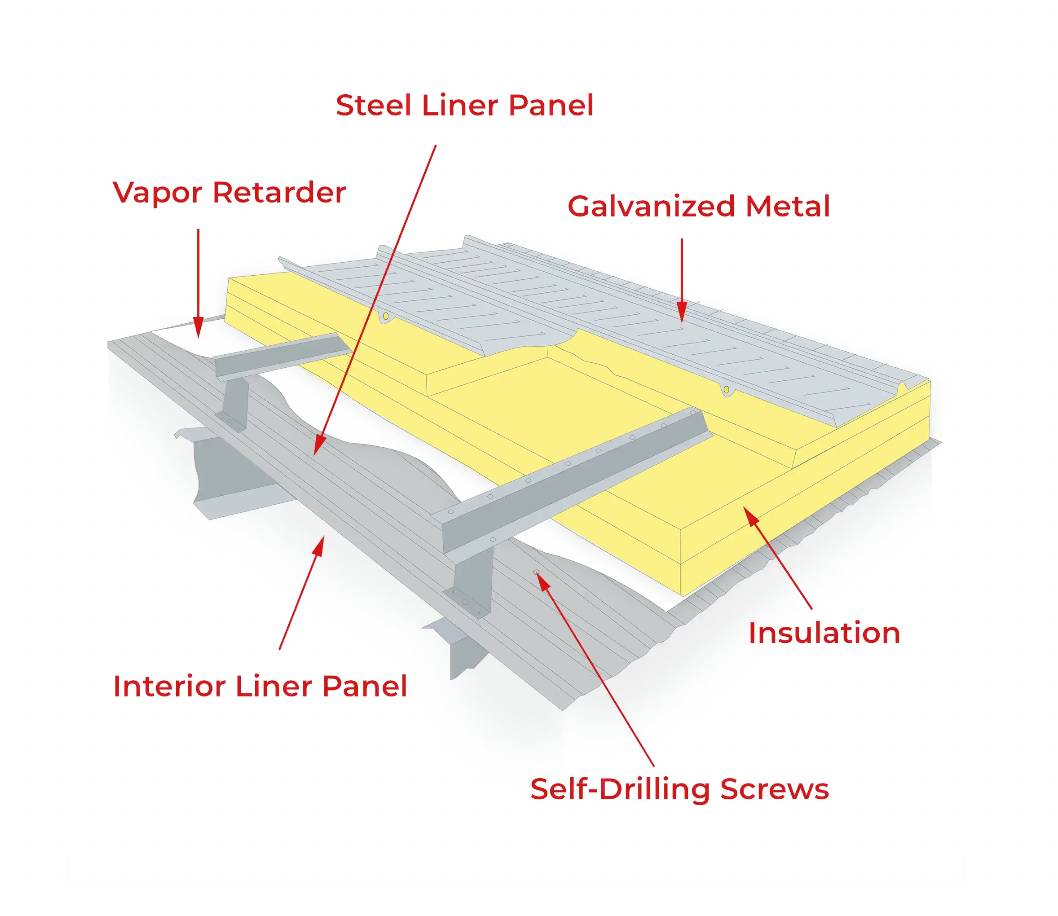
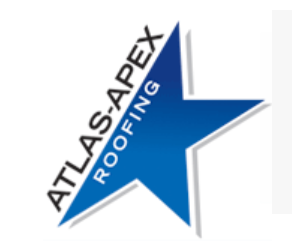
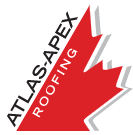
Share On: